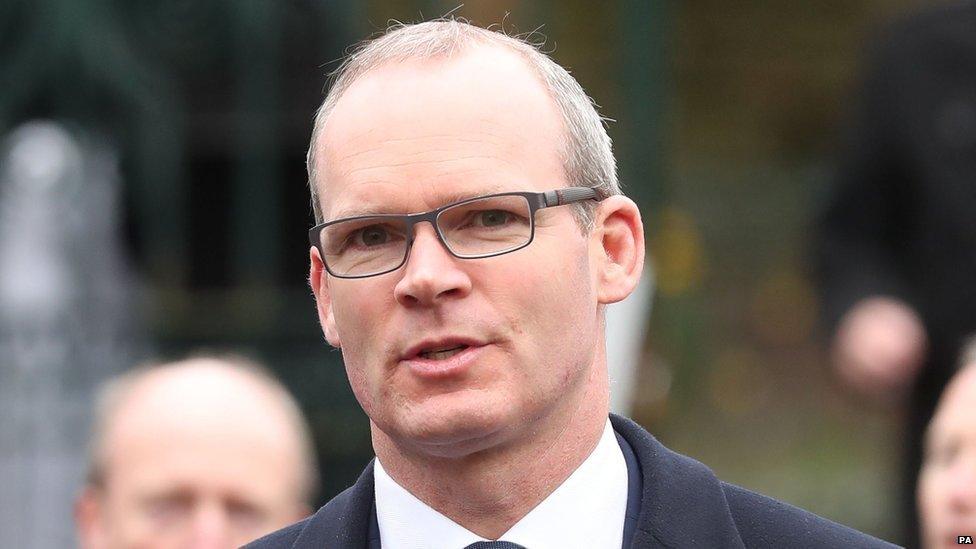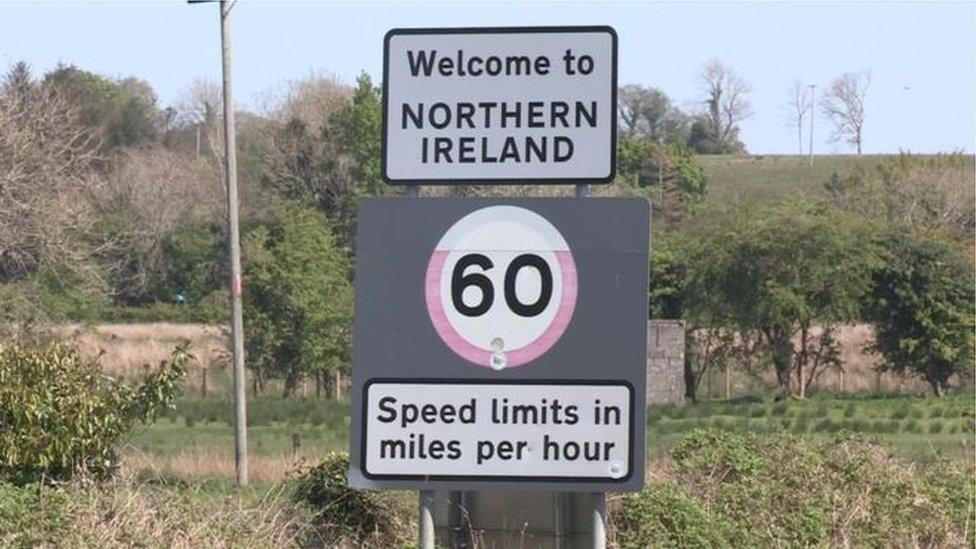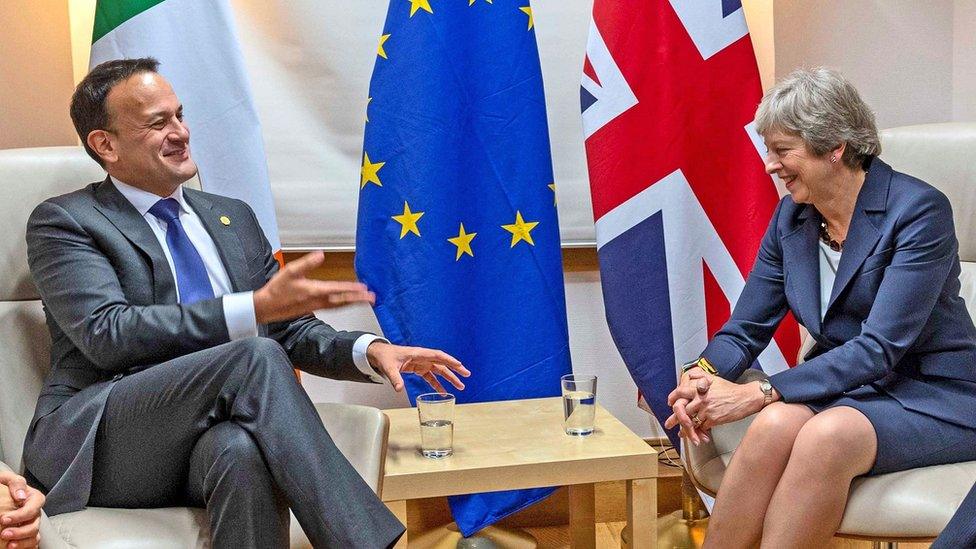Simon Coveney: Brexit border deal 'not for granted'
- Published

Simon Coveney said people should not get carried away by rumours.
The Irish foreign minister has warned against expectations of an imminent breakthrough in the Brexit talks.
Tánaiste (Deputy Prime Minister) Simon Coveney said a deal on the border "is not necessarily to be taken for granted, not by a long shot".
Speaking in Dublin, he appealed to people "not to get carried away" on the basis of rumour.
Meanwhile, Foreign Secretary Jeremy Hunt has said he is confident a deal can be made to avoid a hard border.
Although 95% of a Brexit deal is said to be agreed, the UK and the EU have yet to agree on how to guarantee that there will be no return to visible infrastructure on the border between Northern Ireland and the Republic of Ireland in future.
Both sides agreed to put in place a "backstop", also referred to as an insurance policy, that would only be triggered if a future trade deal is not in place by the end of 2020 - or if this final deal does not ensure a "frictionless" border.
One option being considered is for the whole of the UK to remain temporarily aligned to the EU customs union, avoiding the need for customs checks at the border.

The Irish government has rejected the notion of any such time-limited solution.
Mr Coveney emphasised that any plan could only come as the result of negotiation between the UK government and the EU.
He said: "Repeatedly, as people seem to make the same mistake over and over again: assuming that if the British cabinet agree something, well then that's it then, then everything is agreed.
"This is a negotiation and needs to be an agreement - of course between the British government but also the European Union and the 27 countries that are represented by Michel Barnier and his negotiating team".
'No new vote'
Speaking in Paris, Jeremy Hunt it was "probably pushing it" to expect a Brexit deal within the next week.
The Foreign Secretary also dismissed the idea of a new vote on Britain leaving the EU.
He said: "There isn't going to be a second referendum. Parliament would never vote for it. If there were to be a second referendum it would be profoundly undemocratic"
- Published5 November 2018

- Published16 October 2019
